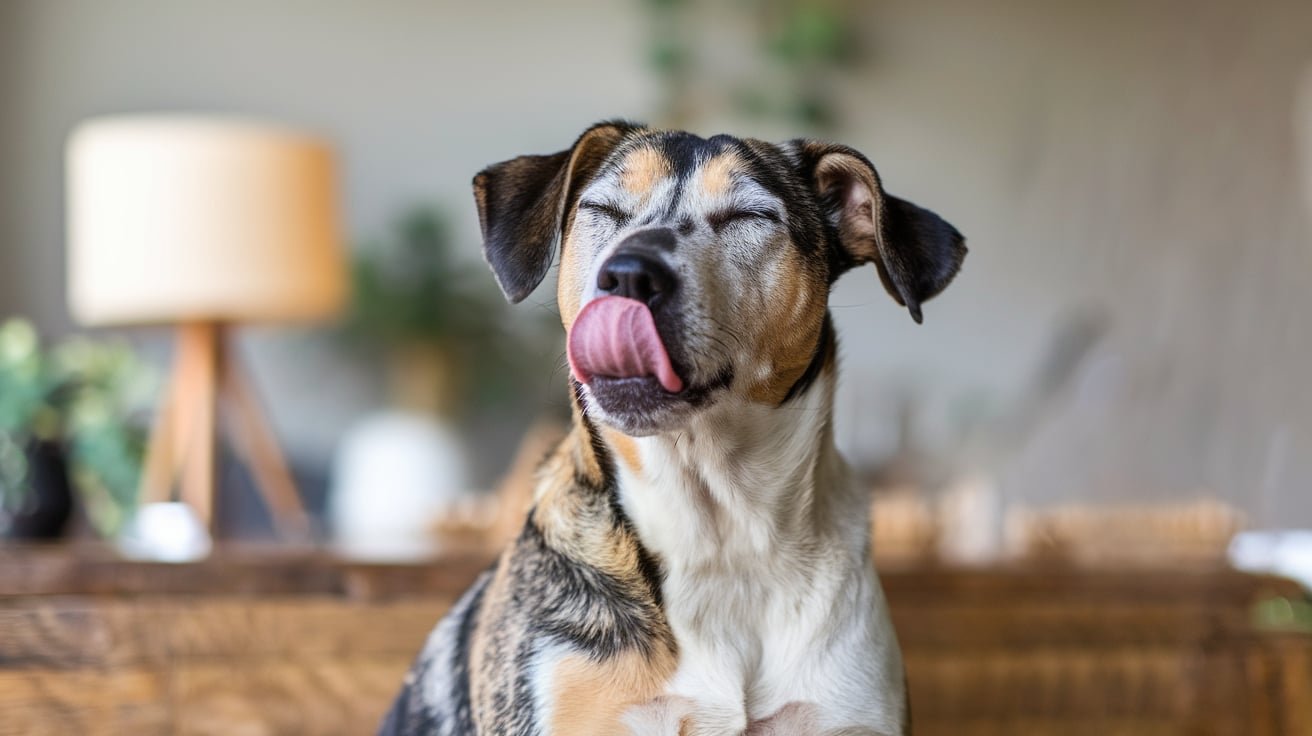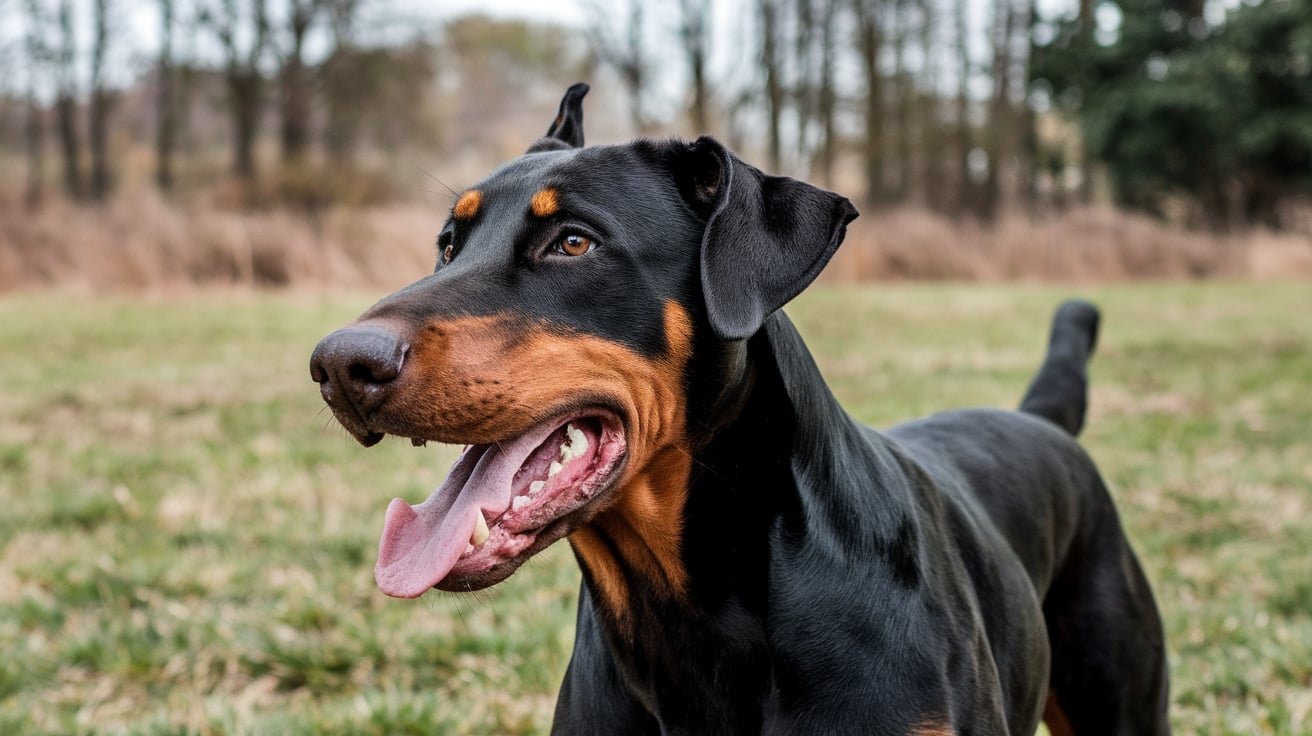Introduction:
If you’re a dog owner, you’re probably familiar with the sound of your dog panting. Dogs pant for many reasons—it’s natural after exercise, on a hot day, or after a bout of excitement. However, dog panting at night can be concerning. If your furry friend is restless, pacing, or panting excessively in the quiet hours, it’s important to figure out why. This guide will help you understand what’s causing it, how to address the problem, and when to worry.
What Is Panting, and Why Do Dogs Pant?
Panting is a dog’s way of cooling down and regulating body temperature. Unlike humans, dogs don’t sweat through their skin (except in their paws). Instead, they cool themselves by exhaling warm air and inhaling cooler air. But panting isn’t always about cooling off—sometimes it can indicate stress, anxiety, or an underlying health issue.
Anecdote: My neighbour’s dog, Bella, started panting late at night a few weeks ago. At first, they thought it was just the warmer summer nights, but it continued even on cooler evenings. After a few sleepless nights and a trip to the vet, they found out Bella had developed a slight respiratory issue. It was a relief to know what was going on, and now Bella is back to her happy, relaxed self.
Common Reasons Dogs Pant at Night
There are several reasons why your dog might be panting at night, and not all of them are serious. However, persistent panting is always worth investigating.
1. Heat and Temperature Regulation
Even though the UK isn’t known for extreme heat, dogs can still get too hot indoors, especially during summer months or if the room they sleep in doesn’t have good ventilation. If the room is stuffy or your dog’s bed is in a warm area, they might be panting to cool down.
Solution:
- Ensure your dog’s sleeping area is well-ventilated.
- Provide a cooling mat or a fan to keep air circulating.
- Make sure they always have access to fresh, cool water.
2. Anxiety or Stress
Just like people, dogs can feel anxious or stressed, especially at night when things are quiet, and they feel more vulnerable. They might feel anxious due to loud noises outside (like fireworks or thunderstorms) or due to separation anxiety if they’re alone at night.
Solution:
- Create a calm and comfortable space for your dog, perhaps with a favourite blanket or toy.
- Consider dog-calming products like pheromone diffusers or anxiety wraps.
- If the anxiety is persistent, talk to your vet about possible treatments or therapies.
3. Pain or Discomfort
Dogs are good at hiding pain, but excessive panting can be a sign that something is wrong. If your dog has an injury, arthritis, or an illness causing discomfort, they might pant more when lying down or when the pain becomes more noticeable at night.
Solution:
- Check for signs of discomfort like limping, swelling, or reluctance to move.
- If your dog is older, they could be developing arthritis or joint issues—speak to your vet about joint supplements or pain relief.
- A visit to the vet is essential if you suspect pain as the root cause of the panting.
4. Heart Disease
One more serious cause of panting at night is heart disease. If your dog’s heart isn’t working efficiently, it can lead to poor oxygenation in their body, making them pant more, particularly when lying down. This can also be accompanied by coughing or general lethargy.
Solution:
- If you notice your dog panting excessively along with symptoms like coughing or fatigue, see a vet immediately. Early diagnosis of heart disease can improve your dog’s quality of life.
5. Respiratory Issues
Dogs with breathing difficulties—whether from respiratory infections like kennel cough or conditions like laryngeal paralysis—often pant more because they’re struggling to get enough air. This can be more pronounced at night when they are lying down and relaxed.
Solution:
- If your dog’s panting is accompanied by wheezing, coughing, or laboured breathing, it’s best to see the vet for a thorough check-up.
- Some dogs may need medication or even surgery to help with their breathing.
When to Worry: Signs Your Dog’s Panting May Be Serious
While occasional panting isn’t usually a cause for alarm, there are times when panting at night can indicate something more serious. If you notice any of the following, it’s best to consult a vet:
- Panting that lasts more than 10 minutes after your dog has calmed down.
- Excessive drooling or a change in the colour of your dog’s gums (they should be pink, not pale or blue).
- Laboured breathing or wheezing.
- Restlessness or an inability to lie down comfortably.
Anecdote:
A friend of mine noticed her dog, Max, started panting excessively one night out of nowhere. Max wasn’t overly warm, and he hadn’t been running around. After a quick check, she noticed his gums were turning pale. It turned out Max had an underlying heart issue that was affecting his breathing. Thankfully, she got him to the vet in time for a proper diagnosis and treatment. The moral of the story: don’t ignore changes in your dog’s panting!
Step-by-Step Guide: What to Do if Your Dog Panting at Night
If you’re dealing with a dog that’s suddenly panting at night, it can be stressful. Follow this step-by-step guide to help your dog and determine whether a trip to the vet is necessary.
Step 1: Check the Room’s Temperature
Ensure your dog isn’t too warm. Open a window, turn on a fan, or move your dog to a cooler part of the house.
Step 2: Offer Water
Panting dehydrates dogs, so always make sure they have access to fresh water. If they’re reluctant to drink, you can try adding a little flavour, such as low-sodium broth.
Step 3: Look for Stress or Anxiety Triggers
Consider any recent changes in your dog’s environment. Have you moved their bed? Is there a new sound outside, such as increased traffic or neighbourhood noise?
Step 4: Examine for Pain or Discomfort
Check if your dog is limping or if they seem uncomfortable. Press gently on their joints and abdomen to see if they react to touch.
Step 5: Monitor Their Breathing
Pay attention to your dog’s breathing. If it appears laboured, or if they are coughing or wheezing, then it’s a good idea to seek professional help.
Step 6: Visit the Vet
If you’ve ruled out simple causes (like heat or stress) and your dog is still panting excessively at night, a vet visit is the next step. A vet can check for more serious conditions like heart disease or respiratory problems.
Helping Your Dog Stay Comfortable at Night
Whether your dog is dealing with heat, anxiety, or a health condition, here are a few tips to help them feel more comfortable:
- Create a calm environment: Dim the lights and reduce noise levels to help your dog relax.
- Provide cooling options: Use a cooling mat or provide a cool surface like tiles for them to sleep on during warmer months.
- Use calming products: Consider pheromone diffusers or calming supplements if anxiety is the issue.
- Talk to your vet: If your dog has a medical condition, your vet may suggest medications to help ease breathing difficulties or reduce anxiety.
Conclusion: Take Dog Panting at Night Seriously, But Don’t Panic
Panting at night isn’t always a cause for concern, but it’s something that dog owners should monitor closely. Sometimes, it’s a simple fix like cooling down the room, but other times, it may be a sign of a more serious condition. By paying attention to your dog’s behaviour and following the steps outlined in this guide, you can help your furry friend stay comfortable and healthy.
If you’re worried or if the panting persists, don’t hesitate to contact your vet for professional advice. After all, your dog’s health and comfort are the top priorities.



